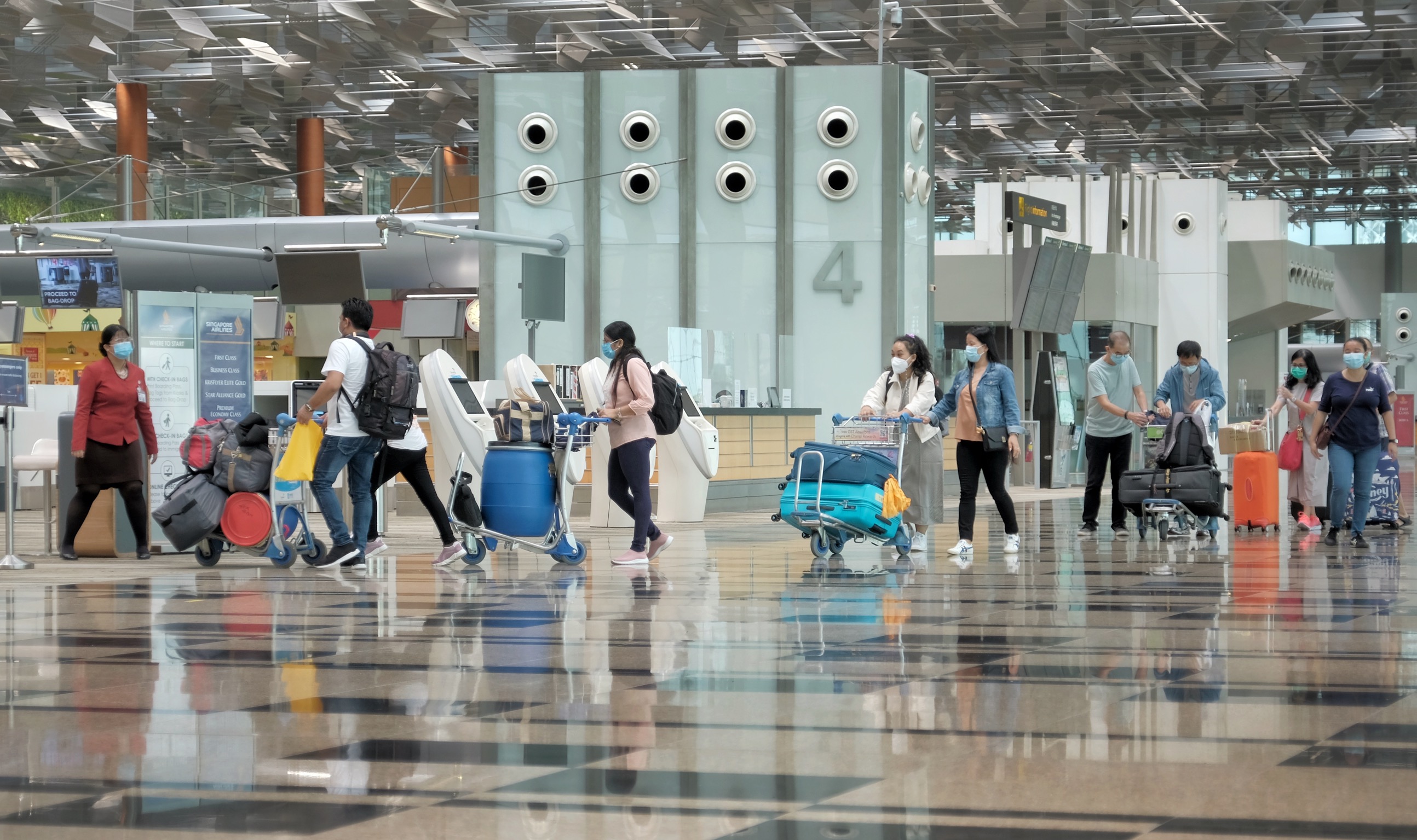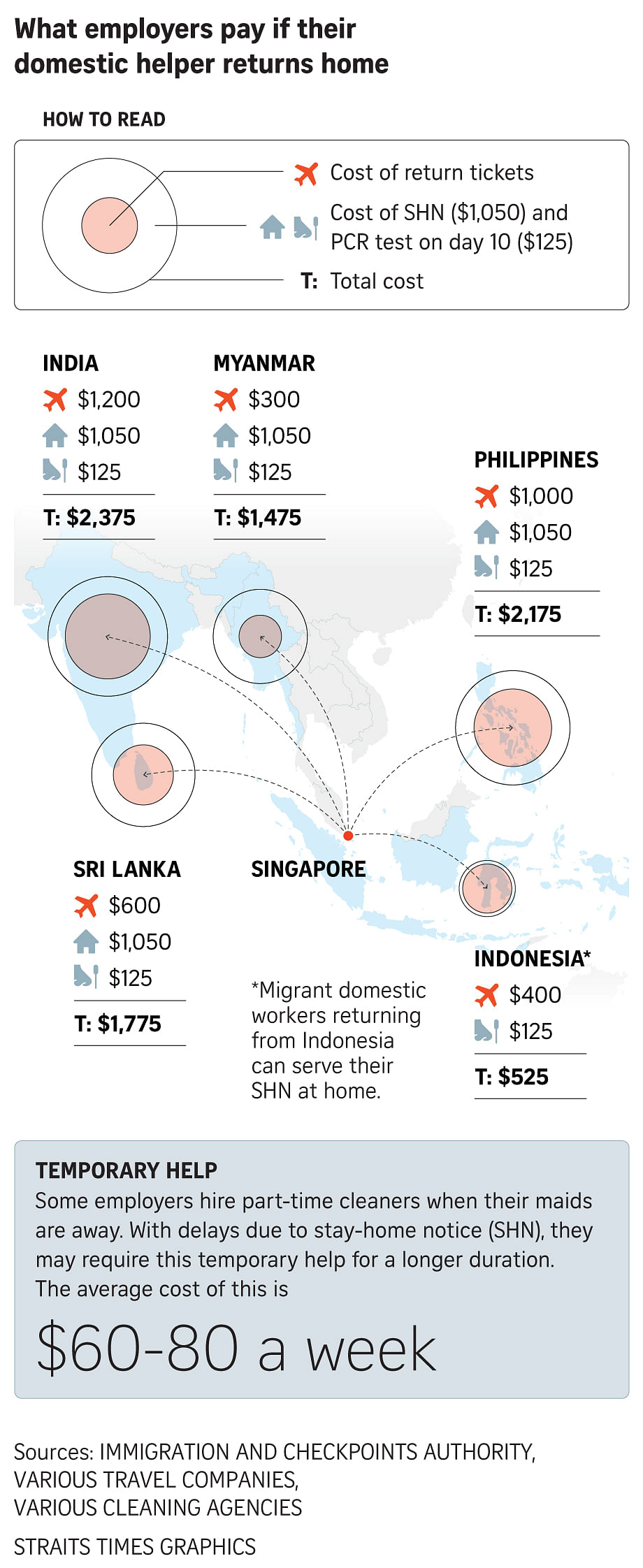Border restrictions, stay-home notice make it hard for domestic workers to visit home
Sign up now: Get ST's newsletters delivered to your inbox

Since the pandemic, few domestic workers have gone home and then returned to work in Singapore.
ST PHOTO: GAVIN FOO
SINGAPORE - There were 245,600 migrant domestic workers in Singapore as at June this year, according to the Ministry of Manpower (MOM), down from the 261,800 that were working here in December 2019, before the onset of the Covid-19 pandemic.
When the pandemic started early last year, a number of countries imposed strict quarantine rules or even closed their borders, and the maids here, hailing from nations such as the Philippines, Indonesia, India, Sri Lanka and Myanmar, found it tough to go home for visits.
In an advisory on its website, the MOM advises employers and domestic workers to discuss and come to a mutual agreement for the domestic workers to postpone home leave until the Covid-19 situation stabilises.
If the domestic workers do want to go back for a visit, the MOM advisory adds: "Employers should inform (domestic workers) that they may be subject to stay-home notice upon return to Singapore."
Maid agencies The Straits Times spoke to said that since the pandemic, few domestic workers have gone home and then returned to work in Singapore.
Ms Flora Sha, who manages United Channel maid agency, said: "Before Covid, going on home leave was always a simple process. But now, when the maid wants to come back from home leave, the employer needs to apply for entry approval which is so difficult to get nowadays because of the limited numbers (allowed in).
"There's also the cost of stay-home notice which the employer has to pay on top of the air ticket."
Recruitbee Employment director Stephenie Toh believes that the number of domestic workers who have visited home during the pandemic has dropped by about 80 per cent compared with pre-Covid-19 days.
Ms Toh said: "Because of border restrictions, domestic workers are reluctant to return for home leave unless there's an emergency. Most of those who have gone back are domestic workers who did not want to work in Singapore anymore."
Centre for Domestic Employees executive director Lynn Koi said not being able to return home has affected some domestic workers emotionally.
"With the pandemic, going home has become quite uncertain, and some of them inevitably feel anxious or sad they are unable to take some time off to visit loved ones back home," she said.
Domestic workers can stay connected to their loved ones using smartphones and apps such as Zoom and WhatsApp, but it obviously cannot replicate the emotional connection made through physical contact, Ms Koi added.
She said open communication between employers and their domestic workers who cannot return home is important, especially in these trying times.
"Through open and honest communication, employers can better understand the feelings and challenges faced by their domestic workers and even their loved ones back home," said Ms Koi.
"Should a domestic worker be troubled due to family issues, we hope employers can extend the necessary support to them."



